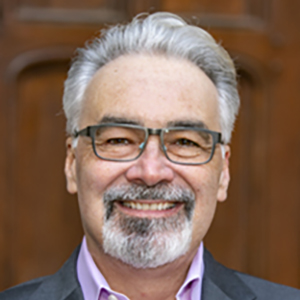
John P. McCormick is Professor of Political Science. His research and teaching interests include political thought in Renaissance Florence (specifically, Guicciardini and Machiavelli), 19th and 20th century continental political and social theory (with a focus on Weimar Germany and Central European emigres to the US), the philosophy and sociology of law, the normative dimensions of European integration, and contemporary democratic theory.
Recent Research / Recent Publications
Reading Machiavelli (Princeton University Press, 2018).
Weimar Thought: A Contested Legacy (Princeton University Press, 2013).
Machiavellian Democracy (Cambridge University Press, 2011).
Weber, Habermas, and Transformations of the European State (Cambridge University Press, 2006).
Carl Schmitt's Critique of Liberalism: Against Politics as Technology (Cambridge University Pres, 1997).
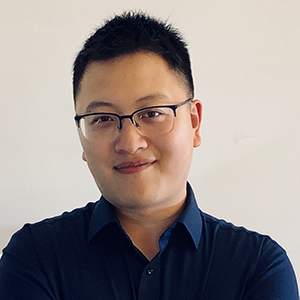
Zhaotian Luo is a formal theorist with a broad interest in the political economy of power and institutions. He specializes in developing and applying game theoretic models to explain the foundation, performance, evolution, and failure of various political institutions as equilibrium outcomes emerging from the strategic interaction among political actors. His current research centers around the dynamics of political power and institutions, including democratic backsliding and authoritarian consolidation.
Recent Research / Recent Publications
“Why are the Fastest Growing Countries Autocracies?,” Journal of Politics, 81(2), 663-669, 2019 (with Adam Przeworski).
“Strategies of Election Rigging: Tradeoffs, Determinants, and Consequences,” Quarterly Journal of Political Science, 13(1), 1-28, 2018 (with Arturas Rozenas).
“The Election Monitor’s Curse,” American Journal of Political Science, 62(1), 148-160, 2018 (with Arturas Rozenas).
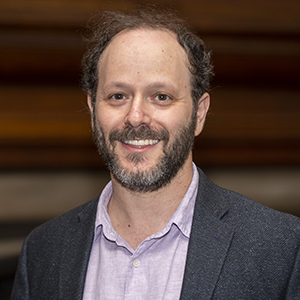
My research focuses on political institutions and practices and the historical, conceptual, and normative questions they raise. Much of my research is on ancient Greece, which offers theorists models of politics that are at once seemingly familiar and strikingly different from our own, from institutions of accountability to practices of public speaking and rhetoric to methods of voting and forming collective judgments.
My book, Dangerous Counsel: Accountability and Advice in Ancient Greece, will be published in September 2019 by the University of Chicago Press. In the book I argue that in ancient Greece the analogy between the demos and the tyrant was no mere metaphor, nor a simple reflection of elite prejudice. Instead, it highlighted an important structural feature of Athenian democracy. Like a tyrant, the Athenian demos was an unaccountable political actor with the power to hold its subordinates to account. And just as with a tyrant, counselling the demos could be dangerous: the orator addressing the assembly was always accountable for the advice he gave.
The problems and opportunities associated with counselling powerful political actors were therefore comparable across regimes. Problems of distrust, manipulation, misaligned incentives, and the knowledge burdens attendant on the exercise of accountability functions were not regime-specific. The ancient Greek theory of political counsel was a strikingly portable one, traveling across political boundaries in surprising and enlightening ways. Throughout the book, I offer new interventions in a number of central debates in ancient political theory, including controversies surrounding the relationship between tyranny and democracy, the nature of democratic discourse, and how to understand the responses of philosophers, historians, and dramatists to the Athenian democratic experiment.
Recent Research / Recent Publications
Dangerous Counsel: Accountability and Advice in Ancient Greece.
Forthcoming, European Journal of Political Theory.
Forthcoming, Journal of Politics.
Polis, Vol. 33, No. 1, 2016.
Critical Review, Vol. 27, Nos. 3-4, 2015.
Political Theory, Vol. 42, No. 2, April 2014.
History of Political Thought, Vol. XXXIII, No. 2, Summer 2012.
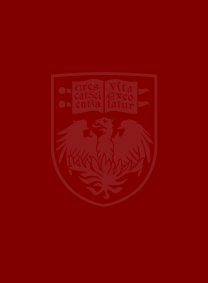
Adom Getachew is Professor of Political Science and Race, Diaspora & Indigeneity at the University of Chicago. She is a political theorist with research interests in the history of political thought, theories of race and empire, and postcolonial political theory. Her work focuses on the intellectual and political histories of Africa and the Caribbean. She is the author of Worldmaking after Empire: The Rise and Fall of Self-Determination (2019) and co-editor, with Jennifer Pitts, of W. E. B. Du Bois: International Thought (2022). She is currently working on a second book on the intellectual origins and political practices of Garveyism—the black nationalist/pan-African movement, which had its height in the 1920s. Her public writing has appeared in Dissent, Foreign Affairs, the London Review of Books, the Nation, the New York Review of Books, and the New York Times.

Scott Gehlbach is the Elise and Jack Lipsey Professor in the Department of Political Science, the Harris School of Public Policy, and the College at the University of Chicago. A scholar of authoritarian and post-authoritarian regimes, much of Gehlbach’s research is motivated by the contemporary and historical experience of Russia and Ukraine. His early work focused on the postcommunist transition in these and neighboring countries—a period of enormous political and economic change that exposed the centrality of institutions and the often divergent effects of similar reforms. More recently, Gehlbach has examined the relationship between reform and rebellion in autocracies, with an empirical focus on late Imperial Russia, and the impact of political connections on economic outcomes using large firm-level datasets from Ukraine. An early and leading practitioner of the use of game theory to model the institutions of authoritarian regimes, Gehlbach is author of the widely used textbook Formal Models of Domestic Politics, now in its second edition.
Prior to coming to Chicago, Gehlbach was for sixteen years a faculty member at the University of Wisconsin–Madison. He has at various times been affiliated with both the New Economic School—twice as a Fulbright-Hays Fellow—and the Higher School of Economics in Moscow. Among other service to the discipline, he is currently first vice president of the Society for Institutional and Organizational Economics, associate editor of the Quarterly Journal of Political Science, and organizer of the annual Summer Workshop in the Economic History and Historical Political Economy of Eurasia. At the University of Chicago, Gehlbach co-led the process to create a new Ph.D. Program in Political Economy, a joint offering of the Department of Political Science and the Harris School of Public Policy; he now leads the program as its director.

Michael C. Dawson is the John D. MacArthur Professor Emeritus of Political Science and the College at the University of Chicago. He has also taught at the University of Michigan and Harvard University. Dawson received his BA with High Honors from Berkeley in 1982 and doctorate degree from Harvard University in 1986. Professor Dawson was co-principal investigator of the 1988 National Black Election Study and was principal investigator with Ronald Brown of the 1993-1994 National Black Politics Study.
His research interests have included the development of quantitative models of African American political behavior, identity, and public opinion, the political effects of urban poverty, and African American political ideology. This work also includes delineating the differences in African American public opinion from those of white Americans. More recently he has combined his quantitative work with work in political theory.
His previous two books, Behind the Mule: Race and Class in African-American Politics (Princeton 1994) and Black Visions: The Roots of Contemporary African-American Political Ideologies (Chicago 2001), won multiple awards, including Black Visions winning the prestigious Ralph Bunche Award from the American Political Science Association. Dawson has also published numerous journal articles, book chapters and opinion pieces. Dawson's strong interest in the impact of the information technology revolution on society and politics, as well as his research on race are both fueled in part from his time spent as an activist while studying and working in Silicon Valley for several years. Dawson is currently finishing an edited volume, Fragmented Rainbow, on race and civil society in the United States as well as a solo volume, Black Politics in the Early 21st Century.
He is with Lawrence Bobo, the founding co-editor of the journal The Du Bois Review (Cambridge University Press), as well as being the founding director of the Center for the Study of Race, Politics and Culture at the University of Chicago. Dawson has also served as the Chair of the Political Science Department of the University of Chicago. Among other duties Dawson was elected to the Board of the Social Science Research Council and the American Academy of Arts and Sciences in 2006. Dawson has been interviewed extensively by the print and broadcast media including the Washington Post, The Economist Magazine, The Los Angeles Times, New York Times, Chicago Tribune, NPR, CNN, BET, and ABC News. Dawson is also a regular commentator at TheRoot.com.
Recent Research / Recent Publications
Blacks In and Out of the Left: Past, Present, and Future (Harvard University Press, 2013).
Not in Our Lifetimes: The Future of Black Politics (University of Chicago Press, 2011).
Black Visions: The Roots of Contemporary African-American Ideologies (University of Chicago Press, 2001).
Behind the Mule: Race and Class in African-American Politics (Princeton University Press, 1994).
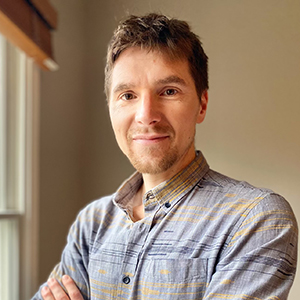
Michael Albertus is a professor in the Department of Political Science at the University of Chicago. His research examines democracy and dictatorship, inequality and redistribution, property rights, and civil conflict. His most recent book, Property Without Rights: Origins and Consequences of the Property Rights Gap, published by Cambridge University Press in 2021, examines why governments that implement land reform programs only rarely grant property rights to land beneficiaries and how that impacts development and inclusion. It won honorable mentions for Best Book award by APSA's Democracy and Autocracy section and the Riker Book Award for best book in political economy. Albertus' work has been published in the American Journal of Political Science, Journal of Politics, World Politics, Journal of Conflict Resolution, Journal of Development Economics, Quarterly Journal of Political Science, Comparative Political Studies, International Studies Quarterly, and elsewhere.
Recent Research / Recent Publications
Why Land Reform Matters in South Africa’s Election, Foreign Policy, May 27, 2024
Property Without Rights: Origins and Consequences of the Property Rights Gap (Cambridge University Press, 2021).
“Land Reform and Civil Conflict: Theory and Evidence from Peru,” American Journal of Political Science (2020).
Authoritarianism and the Elite Origins of Democracy (Cambridge University Press, 2018).
“Unlikely Democrats: Economic Elite Uncertainty Under Dictatorship and Support for Democratization,” with Victor Gay. American Journal of Political Science (2017).